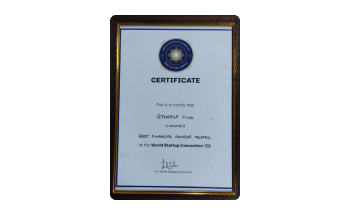In India, trust registration follows the Indian Trusts Act of 1882. A trust involves transferring property from the owner to a trustee. Its purpose is ensuring fair distribution of the person's assets to specified beneficiaries per the trust deed's terms.
Upon establishment, the owner appoints a trustee to manage and allocate assets to chosen beneficiaries, which are the heirs, family members, or charitable organisations. The trust deed defines terms, beneficiaries, trustee duties, and asset management guidelines that the trustee must strictly adhere to.
Parties involved in the Trust Registration Process
These are the parties involved in online trust registration:
|
Role
|
Definition
|
|
Trustor
|
The individual who establishes the trust and is the owner of the assets involved.
|
|
Trustee
|
An individual or entity entrusted with managing and administering the trust on behalf of the trustor.
|
|
Beneficiary
|
The intended recipient of the trust benefits, assets, or property according to the trust terms.
|
Essential Considerations for Trust Objectives
A fundamental requirement for establishing a trust is that its purpose must be lawful. To determine whether a trust's purpose is lawful or unlawful, Section 4 of the relevant act provides guidance. According to Section 4, a purpose is considered unlawful if it:
- Contravenes any existing law
- Circumvents or defeats the provisions of any law
- Involves fraudulent activities
- Causes injury to another person or their property
- Is immoral or contrary to public policy
Benefits of Trust Registration
The advantages of registering your NGO online in India are as follows:
- Asset Protection: When you register your NGO, your assets are protected from stuff like lawsuits,creditor risks and other money problems.
- Tax Benefits: For Non-profits you might not have to pay some taxes, according to the law.
- Continuity and Longevity: Registered trusts can operate indefinitely, ensuring the sustained pursuit of organisational objectives and charitable activities.
- Flexibility: Trust registration offers flexibility in structuring and managing assets for specific purposes or beneficiaries, allowing for tailored approaches.
- Professional Management: Trustees appointed in registered trusts provide professional management and oversight of trust assets, ensuring efficient administration.
Types of Trusts in India
Given below in the table are the kinds of registered charitable trusts in India:
|
Type of Trust
|
Description
|
Governing Legislation
|
|
Public Trust
|
Established for the benefit of the general public.
|
Acts for ex- Religious Endowments Act of 1863, Charitable and Religious Trust Act of 1920, Bombay Public Trust Act of 1950
|
|
Private Trust
|
Established for specific individuals, families, or close associates.
|
The Trusts Act of 1882
|
|
Public Cum-Private Trust
|
Serves both public and private purposes. Beneficiaries can be a combination of public and private individuals.
|
Statutes governing public and private trusts
|
|
Private Limited Trust
|
Established for specific individuals, families, or close associates.
|
The Trusts Act of 1882
|
|
Public Limited Trust
|
Created for benefitting to the general public for charitable, educational, and religious purposes.
|
Acts such as Religious Endowments Act of 1863, Charitable and Religious Trust Act of 1920, Bombay Public Trust Act of 1950
|
Laws Governing Registration of Trust
The regulation to register ngo online involves these laws:
|
Regulatory Authority
|
Laws
|
Description
|
|
Registrar of Trusts
|
Trusts Act of 1882
|
Responsible for maintaining a comprehensive database of all registered trusts in India. The Trusts Act of 1882 governs the registration process and administration of private trusts, giving their rights, responsibilities, and procedures.
|
|
Relevant State Authority
|
State-specific Acts
|
Public trusts in India must register with the relevant state authority as per the applicable state act. Different states may have varying requirements for registration and administration of public trusts, making compliance with state-specific laws essential for their operation.
|
| |
Income Tax Act of 1961
|
Grants tax benefits and exemptions to registered trusts. Donors can avail tax deductions when contributing to registered trusts under this act. Compliance with tax regulations outlined in the Income Tax Act is major for maintaining the tax-exempt status of trusts.
|
| |
Societies Registration Act of 1860
|
Although not directly governing trust registration, this act regulates the formation and functioning of societies engaged in charitable, literary, scientific, or artistic activities. Societies often collaborate with trusts and may undertake similar endeavours, making awareness of this act important for trustees.
|
Essential Requirements for Online NGO Registration
The essentials for trust registration include:
|
Prerequisite
|
Details
|
|
Non-governmental, non-profit entity
|
The trust must be established as a non-governmental and non-profit organisation.
|
|
Minimum of 2 Trustees
|
At least two individuals must be designated as trustees for the trust.
|
|
Lawful purpose
|
A legitimate objective or purpose for the establishment of the trust must be clearly defined.
|
|
Stamped Trust Deed
|
A trust deed drafted on appropriate non-judicial stamp paper, with varying costs across states.
|
|
Beneficiaries
|
The trust must specify either the general public or private individuals as beneficiaries.
|
So, the online NGO registration process in India involves drafting a legally compliant trust deed, defining the trust's objective and beneficiaries, and appointing the requisite number of trustees.
Eligibility Criteria for Trust Registration
Here are the rules to follow if you want to register a trust online:
- No. of People: You need at least two people to start a trust.
- Indian Law: Make sure your trust follows the rules in the Indian Trusts Act of 1882.
- No Disqualifications: None of the people starting the trust should be banned by Indian law.
- Follow the Law: The trust's goals can't break any Indian laws.
- Be Fair: The trustee must treat everyone fairly.
- Respect the Law: The trust can't work against what's good for the public or against any laws.
- Don't Hurt Anyone: The trust's actions shouldn't harm anyone.
- Write Trust deed: The Trust Deed must be written correctly and represent what the people forming the trust really want.
- Clear Goals: If the trust has more than one goal, they all need to be valid. If one goal is okay but the other isn't, the trust can't happen.
Trust Registration Documents
The trust registration documents include these:
Documents of the Trustees and Trustors of the Trust
- PAN cards of all Trustees and Trustors
- Identity proofs of all Trustees and Trustors
- Address proofs of all Trustees and Trustors
- Recent coloured photographs of all Trustees and Trustors
Documents Related to the Trust's Registered Office Premises
- No Objection Certificate from the owner of the premises
- Proof of the registered business address
- Copy of the property registration document
- The Trust Deed
It is recommended to thoroughly verify the documents before submitting them to the concerned authorities.
Trust Registration Process in India
Creating a trust in India involves working with the Registrar of Trusts. There are two kinds: private and public trusts. Private ones follow the Indian Trusts Act, 1882, while public ones follow the Trust Act of their state.
The main thing is getting the Trust Deed sorted. This paper is made and signed by the person starting the trust, with two witnesses and the registrar. The trust registration process includes:
Step 1 – Getting Papers Ready
You need all the right documents. Missing something or messing up could mean your application gets denied. So, gather all the paperwork before starting.
Step 2 – Writing the Trust Deed
The Trust Deed is important. It's like the trust's rulebook and must follow the law. Once it's done, you give it along with other papers to the Registrar of Trusts.
Step 3 – Picking a Name
The trust's name should be unique and explain its purpose. It can't be the same as another trust or trademark. If it is, you can't use it.
Step 4 – Applying for Registration
Start by registering the Trust Deed. Once ready, give it to the Registrar with necessary documents from the person starting the trust and witnesses. These include photos and IDs. Then, sign the deed in front of the registrar. After that, they start the registration process.
Step 5 – Getting the Certificate
If everything's done right, you get a Certificate of Registration. It proves your trust is officially registered. It takes about a week to finish everything in this given process.
Cost of Registration of Trust
These are the costs of registration of trust:
|
Cost Component
|
Description
|
Approximate Cost (Varies by State)
|
|
Stamp Paper Value and Stamp Duty
|
The value of stamp paper used for Trust Deed preparation, typically a percentage of the total value of the trust's property. Stamp duty for stamping the Trust Deed, varying by state.
|
Varies
|
|
Registration and Filing Fees
|
Registration fee (ex-, Rs. 100) for registering the Trust Deed. Additional fee (ex-, Rs. 1,000) for obtaining a copy of the registered Trust Deed.
|
Rs. 100 - Rs. 1,000
|
|
Professional Fees
|
Legal professional fees for services such as drafting the Trust Deed, preparing required documents, and facilitating issuance of the Registration Certificate.
|
Affordable, varies by professional
|
Contents of a Trust Deed
These are the contents of trust deeds:
|
Contents of a Trust Deed
|
Details
|
|
Period/Term of Operation
|
Specifies the duration for which the trust will remain operational.
|
|
Registered Office Address
|
The official address of the trust as recorded with the relevant authorities.
|
|
Geographical Area/Region
|
Defines the specific area or region where the trust will conduct its activities.
|
|
Goals and Objectives
|
Outlines the aims and objectives that the trust seeks to accomplish.
|
|
Trustor Information
|
Details about the person establishing the trust and the asset or that property transferred.
|
|
Board of Trustees
|
Information regarding the trustees, including membership, qualifications, and tenure.
|
|
Roles, Responsibilities, and Powers
|
Describes the duties and authorities assigned to the trustees.
|
|
Amendment Procedures
|
Specifies the process for making changes to the trust deed.
|
|
Closure/Termination Provisions
|
Provisions for the closure or termination of the trust and its assets distribution.
|
|
Legal Compliance
|
Ensures adherence to relevant laws and regulations governing trust operations.
|
|
Legally Binding Document
|
Serves as a binding agreement governing the trust's operations for all involved parties.
|
Penalties for Violating Registration Compliances
Here are the consequences of not complying with the registration laws:
- No Legal Recognition: The trust might not be seen as a real legal entity, which can cause problems.
- Lack of Asset Protection: Not following the rules can make it easier for others to take away what the trust owns.
- Tax Implications: Not following tax rules means missing out on tax breaks and having to pay more taxes and fines.
- Legal Penalties: Getting in trouble with the law, like having to pay fines or going to jail, if the rules aren't followed.
- Limited Rights Enforcement: People who should get things from the trust might find it hard to make sure they get what they're supposed to or to solve problems in court.
- Validity Challenges: People might argue that the trust isn't real or that the rules it follows aren't fair.
- Administrative Hurdles: Not following the rules can make it harder to do paperwork and might make the government look closely at what's going on.
- Reputational Damage: Not following the rules can make people think badly about the trust and might make it harder to trust.
- Beneficiary Disputes: People who should gain things from the trust might argue with each other because it's not clear who should get what.
- Difficulty in Transactions: Not following the rules can make it hard to buy or sell things or to do other legal things.
Why Choose StartupFino for Trust Registration in India?
StartupFino is a professional services firm dedicated to providing comprehensive solutions for trust registration and compliance. Our expertise covers the entire lifecycle of trust management, offering guidance right from the initial stages of trust formation.































































